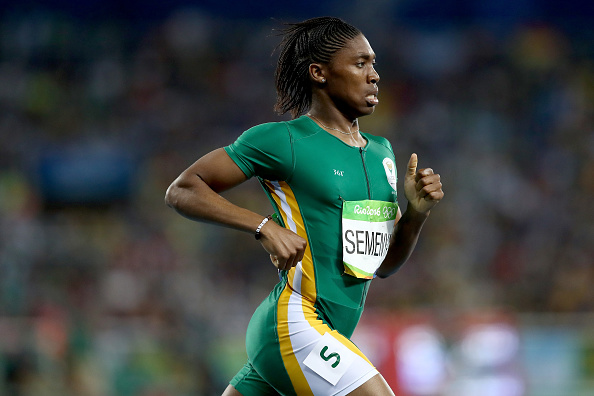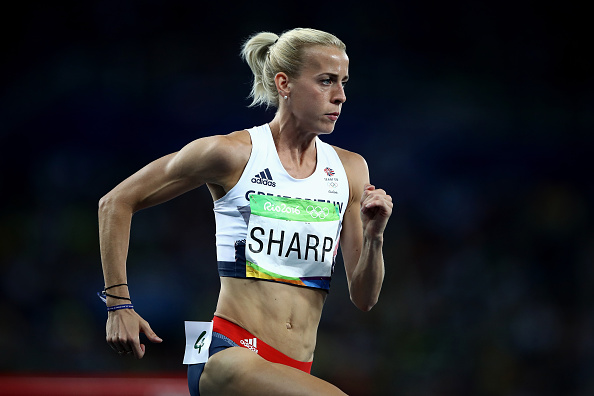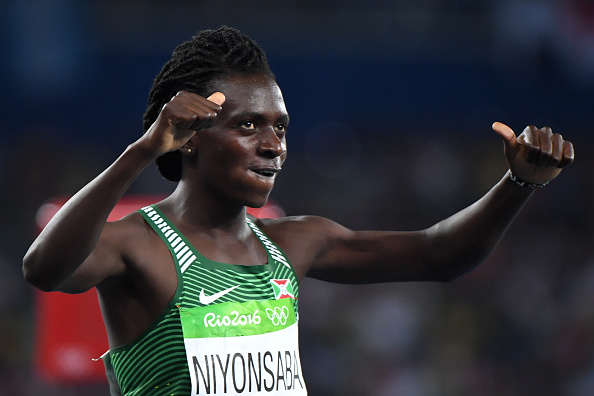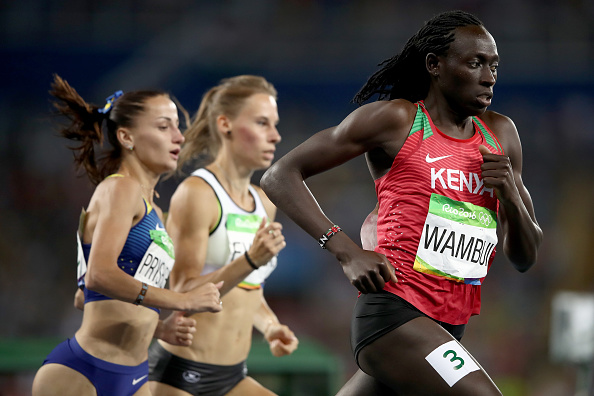A new Olympic champion is guaranteed to be crowned on Saturday evening, the final evening of Athletics action, with all the women in the final dreaming of taking their first Olympic title at Rio 2016. Furthermore, with only two of the women making an Olympic final before, it will be interesting to see who is able to handle the pressure.
This final takes place about 20:15 Eastern Time.
The field
Two fastest losers were given a spot in this final, and both came from the third semifinal. America’s Kate Grace, who came third in that race, starts in lane one whilst Maryna Arzamasova, took the final fastest loser spot and will start out in lane eight.
Caster Semenya, the overwhelming favorite for gold (and perhaps the biggest favorite for a title in the whole of the Olympics), will start her race in lane three. Next to her will be Joanna Jozwik, in lane two, and Margaret Wambui, in lane four; all three women won their respective semifinals.

The final three lanes are taken by those who finished in second place in their semifinals to secure their place. Francine Niyonsaba, who, along with Semenya, made the final in London 2012, will start in lane five, with Melissa Bishop in lane six and Lynsey Sharp in lane seven.
Anyone is capable of medaling
Whilst there is no doubt that former World Champion, and Olympic medalist, Semenya is the favorite, due to how much faster she has been going than anyone else, as well as her strength in the home straight, the strength and depth of the field means this should be a tight battle for the medals.
Arzamasova didn’t make the final comfortably, but, as the current World Champion in this event, is certainly capable of doing well in this final. The silver medalist in Beijing last year was Bishop, which shows that the Canadian is also capable of showing up on the big occasion.
Sharp, a former European Champion, and Commonwealth medalist has not been in a final of this caliber before but is one of the strongest finishers around and will be very dangerous in the final 150 meters if she is in a good position. Another one of the good finishers in the field is Wambui, who, like Niyonsaba, has been a promising junior; both Wambui and Niyonsaba medaled at the World Indoor Championships earlier this year, with the latter taking gold.

Though Grace and Jozwik do not have the career accomplishments of some of the others in the field, they are certainly a factor in this final. The Pole is another quick finisher and will be very confident after her semifinal win, whilst Grace will feel as if there is no pressure on her; she should be able to run a clean, safe race which could put her in a good position.
Where the final will be won and lost
Perhaps the biggest factor in this final will be the pace at which the early leaders set off. Semenya will be capable of keeping up whatever speed the race is going, but, unless she is chasing a fast time, it is unlikely she’ll lead in the early stages. Someone like Niyonsaba, who led for the opening minute of the race in London 2012, can go off fast, though the Burundian must be careful if she does this; this cost her four years ago.

The strong finishers in the race will probably not want to be in control early on, though the likes of Sharp and Wambui have been known to be leading past the halfway stage. The Brit is probably more dependant on her finish than Wambui, so it may be wise for her to sit near the front, but never take the lead and control the pace, as she could be overhauled.
If Arzamasova is in better form than she was in her semifinal, she will look to take the lead with around 250 meters to go; it was this tactic that helped her win the European title in 2014 and the World title last year. However, one disadvantage for her is that this is similar to what Semenya likes to do, and it is unlikely that anyone will be able to match the South African’s strength.
Approaching the final 100 meters, it would be unlikely that anyone would be completely out of contention. Semenya will be strong down the final straight, with the likes of Sharp and Bishop, as well as Grace, likely to finish quickly. If Niyonsaba and Arzamasova are in a good position, they are certainly capable of medaling, though the Belorussian is probably the strongest finisher of the two. Furthermore, Wambui showed in her semifinal that she is capable of a strong finish after being near the front at around the 600-meter stage, as did Jozwik; this could be very tight.

Assessment
Unless there is some form of disaster during the race or one of the all-time great sporting upsets, Semenya should take the gold medal here.
The South African has been virtually unbeatable all season, and if she is anywhere close to her best, she should storm to victory; perhaps in an extremely quick time.
The battle for the minor medals is an extremely interesting one, though, with everyone else capable of getting a medal. It would seem that Wambui, who has looked very impressive so far, is in with a good chance of a medal, whilst the strong finishing Sharp could also get in the mix.
Prediction
Gold- Caster Semenya
Silver- Margaret Wambui
Bronze- Lynsey Sharp








































